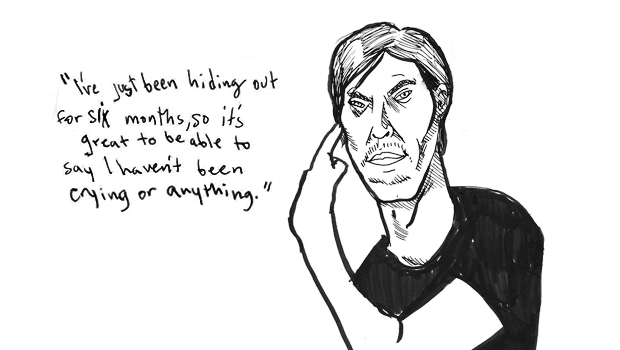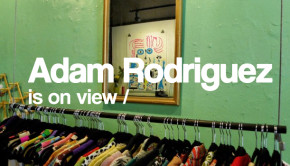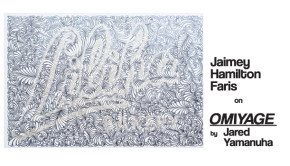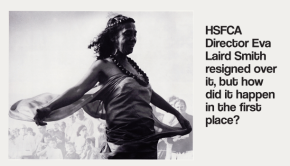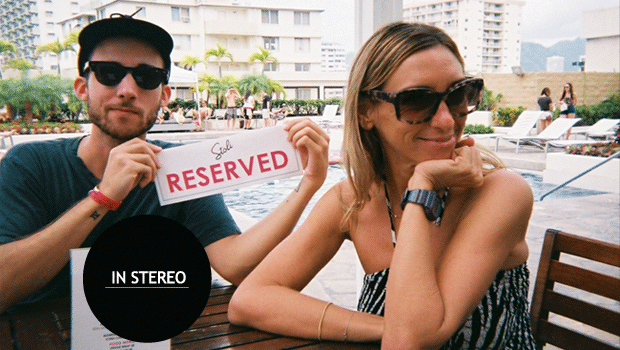When Nextdoor Closes, Another Opens: A Q/A with Chris Kahunahana
Eight years ago, Chris Kahunahana, Sergio Goes, and Miguel Innes threw $350,000 into the nearly derelict 30-foot tall brick box at 43 N. Hotel St. to create the indie-film venue and bar, Nextdoor. This was before The Manifest, Downbeat, Loading Zone, and Lucky Belly opened to give artists places to be seen, heard, fed, and drunk. All that came after. What Kahunahana and friends wanted from Nextdoor was a place for theirs and others’ indie films to be showcased—the Varsity Twins and The Art House at Restaurant Row, where Goes and Kahunahana held their Cinema Paradise Independent Film Festival, had just closed. Landlords wanted Chinatown to be a cleaner thing, and Kahunahana needed a place to show movies. Even Bar 35 and thirtyninehotel were still ideas in the minds of respective owners Dave Stewart and Gelareh Khoie. Now, four months after Nextdoor opened under Daniel Gray’s ownership (who kept the name and giant movie screen), Kahunahana has resumed his lifelong chase of the dream to become a filmmaker. He talked with us about his film production company, a few of the scripts he’s writing, casting, and shooting, and what inspires him as a filmmaker.
How long have you been interested in filmmaking?
Since high school, so the 80s. It was always the thing I loved the most. I’ve always—as soon as I picked up a camera, that’s what I wanted to do. I went to the University of Hawaii before they had a film program, so I did an independent study where I created my own program. It was video production; I learned how to edit on a nonlinear digital editing system. Tape to tape! But then I just got caught up in running a night club for eight years. When we moved into that neighborhood, the whole reason we opened Nextdoor was to show film. I was the director of Cinema Paradise, which was a series of curated film programs. In 2005, all the screening venues were closing down. We opened Nextdoor as a screening venue.
Which eventually phased into more of a straight-up nightclub, right?
It became—even though we loved film, when you run a business, there isn’t a lot of money. Running a film fest is really expensive and a lot of work, a labor of love. We realized, as a business model, it couldn’t have kept that venue open. You can sit 150 people at Nextdoor. You have to pay film rentals. I’d actually curate a film program, talk to filmmakers, distributors, pay a rental fee. The cost didn’t justify running it as a film screening venue. I like the indie scene. We hoped to do more films, but it just got really expensive.
I was living in New York writing screenplays, networking, trying to make it as a filmmaker. Nextdoor kind of just happened. It was a tough decision to make, I didn’t think it was going to be eight years [laughs], so I kept my apartment in New York for two years. I was subleasing it to friends. I was going back to New York less and less.
Are you ever going back to New York?
I plan to go back, hopefully to pick up where I left off. A lot of the people I knew then are still there; they’ve moved up, in fact. Doing really well. In those eight years, the experience of running a business is applicable to running a film company. Film is definitely a business; you have to generate income, do a shitload of marketing. So I think running a nightclub gave me an opportunity to influence lives. You come into contact with a lot of different people. You hear everyone’s life stories. People shouldn’t be surprised if they end up in one of my films soon [laughs]. The characters all kind of meld.
Did your experience in nightlife inspire your screenplays, or was it more like your life imitated your art at the time?
This feature I’m writing is about a bar—the love triangle between a bar patron, the owner, and someone new to the scene competing for the attention of the bar owner. It should be my first feature. When I first got into Nextdoor, I wanted nothing to do with nightlife creatively, so I didn’t think about it at all. But after a period of time, eight years ago, when I was seriously writing—I’m trying to write things now with a fresh perspective. The things I knew—I’ve always thought that it’s a good idea to write the things you know. I definitely didn’t want to make a movie about a club, but it’s weird, like in a breakup. The habits that you create in that old relationship carry over into your new relationship. It’s a good analogy. Even though I got out of that, I’m realizing that it’s a wealth of material. Why try and write away from something that you have so much experience with? I know everything about that industry, so I might as well include it in my writing (at least for the first story). But I don’t want it to be like: Oh yeah, that guy makes a great club movie! Initially, shit, it’s what I know, and it’s simple and therapeutic. I can write all the things I hate about it. The people I didn’t like? I can just kill ‘em in my film [laughs].
So you’re totally out of nightlife now.
Before I moved to New York to pursue film specifically, I did a lot of nightclub bookings for artists. So I have a lot of booking experience. All the agents and artists know me, so I might do a lot of booking here and there, but I don’t want to open a bar anywhere. What you spend your time doing is what you’re going to get done at the end of the day. That’s what I had, a nightclub. Now I’m blessed with the opportunity to not have to work every single day. Technology has changed a shitload in 10 years. So I’m just trying to get up to speed on everything. Color correction, Premier, shooting time lapse, small cameras, I’m learning lenses, whatever—everything.
It must be nice to be able to focus on writing creatively, that you can afford to do that financially.
I sold my business, so I didn’t sell it for nothing. I’m not going to retire anytime soon, and I’m definitely in the starving artist category—shit, I’m moving to New York. But I’ll be good for a while. I’m thinking about shooting a short film, to try and get those into a few festivals. I do know a lot of film programmers. I know what people are looking for when they program a festival. But I’m not writing to that audience, necessarily. There’s certain things you just learn. So I think I should get in; I’m hoping to shoot the feature, produce it, have it done sometime in March next year, and do a couple of festivals with that.
Are you working on anything else?
Since I sold Nextdoor, I rewrote a feature screenplay that I wrote eight years ago. Called Green, it’s about a kid from the Big Island who moved to New York with weed and tried to make it as smalltime drug dealer in New York. He realizes that the grass isn’t always greener on the other side. It was the early 2000s, so it felt like more of a gangster, hip-hop drug-dealing movie. Now I tried to rewrite it; the dialogue was dated. Everything needed to be updated. I took it down to 90 pages; that was the first thing I did. After that, I wanted to shoot something.
I wrote a short screenplay called Lahaina Noon, which is something that occurs once a year in Hawaii when the sun is directly overhead at noon. Nothing casts a shadow. The Hawaiians believe that this is a time of power. The shadow goes back into your body. Magical things can happen. It’s a rumination on death with three different characters and their relationship with death. I’m currently casting for that, by the way.
The feature I’m writing [He can't announce the title yet, until it's registered], takes place in Kakaako. I wanted to do a story about a neighborhood in transition; this was before things started opening in Kakaako. It was all industrial. I was like, man, this neighborhood is kind of interesting. It’s opening up in a good way; all this art is amazing. But the feature is set there; now it’s current.
The screenplay will be done by February. Since I ran Nextdoor, I produced a short film every year for Showdown in Chinatown. So I did eight of them. We knew exactly what our time commitment would be. Everything we did was run-and-done, so the quality is not there. We shot things when we didn’t even have a camera an hour before the shoot, or while we were shooting! So we had to rewrite things to not have a character, if an actor had to leave. It’s a great exercise to keep your mind functioning in that way. I want to spend time with the story that I want.
It took me about two months to write the screenplay for Lahaina Noon. So for this feature, I spent a lot more time developing characters, improving dialogue. The shorts that we shot for Showdown pretty much sucked, but they were exercises. Like, Oh shit. You shot that in 24 hours? That’s sick. But in context, looking back, it isn’t anything I’m going to put on my reel or anything.
Showdown in Chinatown was held at Nextdoor until recently. What do you think about its changes since you sold it?
I sold the business. But right now, they’re operating under a management contract, so I still own it. After we can transfer the liquor license, they’ll fully own it. I don’t have any day-to-day involvement. They initially talked about changing the name, but after eight years of marketing, they decided that was a bad idea. I think they’re doing a good job, so I’m kinda happy with it. They really have an interest in Chinatown, supporting the indie music scene. It’s not necessarily the same program, but I’m happy with what they’re doing.
How does it feel now that they own the name and you’re not involved?
I didn’t think they were going to keep the name. It’s kinda cool. If I decide to open something else, then it would be an issue. But I knew for sure that I was going into film.
Plus, you’ve got the production company now.
Right now, we’re just in the gestation phases. I mean, we haven’t come out with any projects. I’ve just been hiding out for six months, so it’s great to be able to say I haven’t been crying or anything. It’s called Fourth World Film. We have a Vimeo, but we haven’t produced anything. It’s a riff on the fourth wall, the divide between the audience and the movie. It’s social theory but also social political theory alluding to the Fourth World, which goes along the line of First, Second, Third world [theories]. This was coined not so long ago, actually. There’s the First World, what we live in, with too much shit going on; the Second is developing countries; Third World, non-developing countries that don’t participate. I’m referencing the Fourth World to the Native Hawaiians and the diaspora of the Native Hawaiians around the world. They’re a nation, but they’re not bound by geographical territory. People who are ethnically or religiously connected or have the identity as a nation, but don’t necessarily have a location.
You’ll move to New York, but write about Native Hawaiians?
I’ll go back and forth. You know what I realized? One, that the money’s there: all the media, distribution, film producers’ money—it’s all in New York. But I want to be a Hawaii-based filmmaker. Those films about a guy in New York sitting in his room, trying to write a screenplay don’t appeal to me. I’m inspired by the plight of Hawaiian people; those kinds of things inspire me as an artist and as a person. Those are the things I think I should speak about, have an opinion about.
How has your writing evolved from your pre- and post-Nextdoor life?
It’s a decade later. I think I’ve learned a shitload about stuff. I’ve probably watched more than 5,000 movies. I’ve definitely watched a lot of films. My taste has gotten better in movies. I also used to program an underground festival—this was pre-Youtube—called The Honolulu Underground Film Festival. It was the second underground film fest in America, second to Chicago. It predates New York’s. At the time, we were doing films and video that opened a lot of minds to what was possible.
Is there anybody currently doing the kind of film promotion and presentation that you guys did?
You know, I watch so many movies on my computer—yeah, I illegally download movies. There are just some films you can’t get out here. So just creating a venue that gives an audience—R/D’s [microcinema] is a good example. [Interisland Terminal board member] Anderson Le’s brother [Andrew] opened The Pig and the Lady. He’ll be doing things with film. Something like a dinner and a movie. He bought my tables from Nextdoor. I was super happy! For one, I didn’t have to walk them that far. And secondly, they’re talking about doing a little bit of film programming. I think that’d be fun. I like the public presentation of film. There’s a different experience than watching it on your bed on a 13-inch monitor.
How has the film industry changed since the days of Cinema Paradise? How do you feel about the environment for Hawaii filmmakers?
I think it’s going in an interesting way. There are more people interested in production now than there’s ever been. There are more movie productions here, which gives people an education of working on a film set. In terms of festivals, the Hawaii International Film Festival is doing a pretty good job. After we stopped doing Cinema Paradise, they kind of picked up a lot of the programming that we used to do. So they do a lot more films that are edgier, more risque material, Asian risque material. They had an art documentary section which I thought was amazing. Filmmakers here have access to a whole world of films now.

